第155章 CHAPTER VIII(2)
"Accept my thanks for some hours of pleasant reading. Balzac was for me quite a new author; and in making big acquaintance, through the medium of 'Modeste Mignon,' and 'Illusions perdues,' you cannot doubt I have felt some interest. At first, I thought he was going to be painfully minute, and fearfully tedious; one grew impatient of his long parade of detail, his slow revelation of unimportant circumstances, as he assembled his personages on the stage; but by and bye I seemed to enter into the mystery of his craft, and to discover, with delight, where his force lay: is it not in the analysis of motive; and in a subtle perception of the most obscure and secret workings of the mind? Still, admire Balzac as we may, I think we do not like him; we rather feel towards him as towards an ungenial acquaintance who is for ever holding up in strong light our defects, and who rarely draws forth our better qualities.
"Truly, I like George Sand better.
"Fantastic, fanatical, unpractical enthusiast as she often is--far from truthful as are many of her views of life--misled, as she is apt to be, by her feelings--George Sand has a better nature than M. de Balzac; her brain is larger, her heart warmer than his. The 'Lettres d'un Voyageur' are full of the writer's self; and I never felt so strongly, as in the perusal of this work, that most of her very faults spring from the excess of her good qualities: it is this excess which has often hurried her into difficulty, which has prepared for her enduring regret.
"But I believe her mind is of that order which disastrous experience teaches, without weakening or too much disheartening;and, in that case, the longer she lives the better she will grow.
A hopeful point in all her writings is the scarcity of false French sentiment; I wish I could say its absence; but the weed flourishes here and there, even in the 'Lettres.'"I remember the good expression of disgust which Miss Bronte made use of in speaking to me of some of Balzac's novels: "They leave such a bad taste in my mouth."The reader will notice that most of the letters from which I now quote are devoted to critical and literary subjects. These were, indeed, her principal interests at this time; the revision of her sister's works, and writing a short memoir of them, was the painful employment of every day during the dreary autumn of 1850.
Wearied out by the vividness of her sorrowful recollections, she sought relief in long walks on the moors. A friend of hers, who wrote to me on the appearance of the eloquent article in the Daily News upon the "Death of Currer Bell," gives an anecdote which may well come in here.
"They are mistaken in saying she was too weak to roam the hills for the benefit of the air. I do not think any one, certainly not any woman, in this locality, went so much on the moors as she did, when the weather permitted. Indeed, she was so much in the habit of doing so, that people, who live quite away on the edge of the common, knew her perfectly well. I remember on one occasion an old woman saw her at a little distance, and she called out, 'How! Miss Bronte! Hey yah (have you) seen ought o' my cofe (calf)?' Miss Bronte told her she could not say, for she did not know it. 'Well!' she said, 'Yah know, it's getting up like nah (now), between a cah (cow) and a cofe--what we call a stirk, yah know, Miss Bronte; will yah turn it this way if yah happen to see't, as yah're going back, Miss Bronte; nah DO, Miss Bronte.'"It must have been about this time that a visit was paid to her by some neighbours, who were introduced to her by a mutual friend.
This visit has been described in a letter from which I am permitted to give extracts, which will show the impression made upon strangers by the character of the country round her home, and other circumstances. "Though the weather was drizzly, we resolved to make our long-planned excursion to Haworth; so we packed ourselves into the buffalo-skin, and that into the gig, and set off about eleven. The rain ceased, and the day was just suited to the scenery,--wild and chill,--with great masses of cloud glooming over the moors, and here and there a ray of sunshine covertly stealing through, and resting with a dim magical light upon some high bleak village; or darting down into some deep glen, lighting up the tall chimney, or glistening on the windows and wet roof of the mill which lies couching in the bottom. The country got wilder and wilder as we approached Haworth; for the last four miles we were ascending a huge moor, at the very top of which lies the dreary black-looking village of Haworth. The village-street itself is one of the steepest hills Ihave ever seen, and the stones are so horribly jolting that Ishould have got out and walked with W----, if possible, but, having once begun the ascent, to stop was out of the question. At the top was the inn where we put up, close by the church; and the clergyman's house, we were told, was at the top of the churchyard. So through that we went,--a dreary, dreary place, literally PAVED with rain-blackened tombstones, and all on the slope, for at Haworth there is on the highest height a higher still, and Mr. Bronte's house stands considerably above the church. There was the house before us, a small oblong stone house, with not a tree to screen it from the cutting wind; but how were we to get at it from the churchyard we could not see!